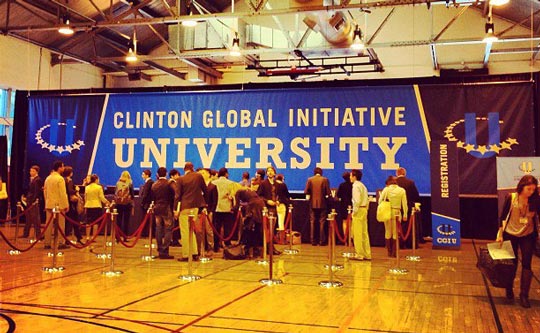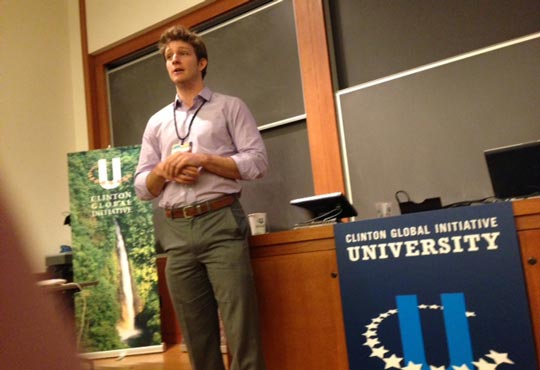
The Clinton Global Initiative University (CGI U) is a conference for university students that are creating projects, products, and organizations for social impact. Each student that attends makes a commitment to social action.
We spoke at CGI U on how students can raise funds online for their commitment. Tyler Gage from Runa, a tea company, shared techniques on getting funding for your nonprofit or social enterprise.

Read more about how Runa has raised over $6MM in funding.
Staff an advisory board
An advisory board helps your startup organization get credibility. Well, known advisors and mentors can lend their reputation to help boost what other funders think of you.
Tell a persistent story
Engaging funders or investors involves creating a dialogue and building a relationship. One of the ways to do this is to tell a persistent story about your progress.
Think about sequential fundraising and using small successes to tell stories to funders.
Your first line of funding
Your first round of funding will come from friends, family, and fools. When you start out, you are unproven. Friends, family, and fools are those that are most likely to support you.
Fake it until you make it
You have to hustle. When you’re starting out, sometimes you have to present a solid front until you can bring substance to fill it up.
Don’t hold your breath for government grants
Runa was able to scale their operations by obtaining government grants. Even though government grants can have large payouts, they may take the right connects and a long timeline to win.
Seek out competitions for funding
Runa was birthed from winning a business plan competition at Brown University. Whether you are a nonprofit or a for-profit, look for competitions like those to help refine your business model and provide seed funding to get started.
Get to product/service as soon as you can
Start producing your product or service as soon as you can so you can demonstrate progress and then report on social impact. When what you do becomes tangible, funders are more likely to support you.




